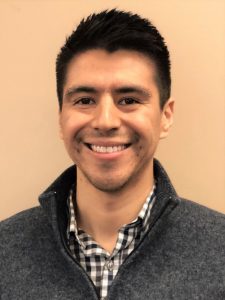 By Eric Howard
By Eric Howard
Last week, 200 national faith leaders descended upon Minneapolis and Central Lutheran Church for the 2019 ELCA World Hunger Leadership Gathering. It was a rare sight to see so many Lutherans gathered under a shared conviction that faith in action could end hunger.
At the heart of the event was its theme: “Creative Congregations, Courageous Leaders: Organizing for Change.” This event title knit together data and stories, scripture, and action in an inspiring, sobering way.
My recent move to downtown Minneapolis has demonstrated to me that homelessness and hunger are more visible than ever. At a gathering workshop, I listened to stories from my neighbors who spoke of times when they were homeless and were refused shelter, food, clothing, and safety. Their experience isn’t unique.
“I listened to stories from my neighbors who spoke of times when they were homeless and were refused shelter, food, clothing, and safety.”
ELCA World Hunger compiled data and resources to help our faith communities understand and teach the realities of hunger from a local and global perspective. The core factors of hunger — housing, employment, food security, food access — were a central focus. To bring it home:
- On a given night in January 2018, 7,243 Minnesotans experienced homelessness (US Department of Housing and Urban Development);
- In Hennepin County, 128,620 people are food insecure, with the second highest county in our synod being Dakota at 30,470 (Feeding America);
- In 2016, only one farmer’s market sold food to people in Scott, Carver, and Sherburne counties (USDA).
AS A GLOBAL CITIZEN, I got a different kind of reality check. Food insecurity around the world has steadily increased since 2015. Climate change, sudden migration, and unstable governments are all significant factors that increase food insecurity.
My immigrant roots sparked a question: Where have I seen this?
I think we’ve all seen it under the surface in recent news about immigration. Families are fleeing their country, making the audacious trek across North America to seek asylum at the U.S.-Mexico border. Like the local homeless and hunger stories I heard, we hear of people at the border refused shelter, food, clothing, and safety.
Where do we find hope? As people of faith, we turn to scripture; as advocates, we organize.
The recent Gospel reading was the parable of the Good Samaritan from the Gospel of St. Luke. The story admonishes people to put aside their differences and “help those who are in need.”
“My recent move to downtown Minneapolis has demonstrated to me that homelessness and hunger are more visible than ever.”
In my experience, how we “help” can be as complicated as the issue itself. That’s where organizing comes in. The act of organizing has an uncanny way of waking us up from indifference and moving us toward meaningful solutions, … one story at a time.
Our stories keep us grounded; being made one body in Christ means “those who are in need” are us. May God hold this conviction as we address hunger one story, one relationship at a time.

